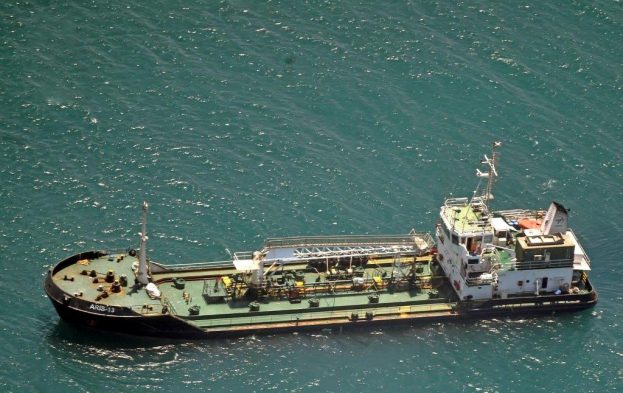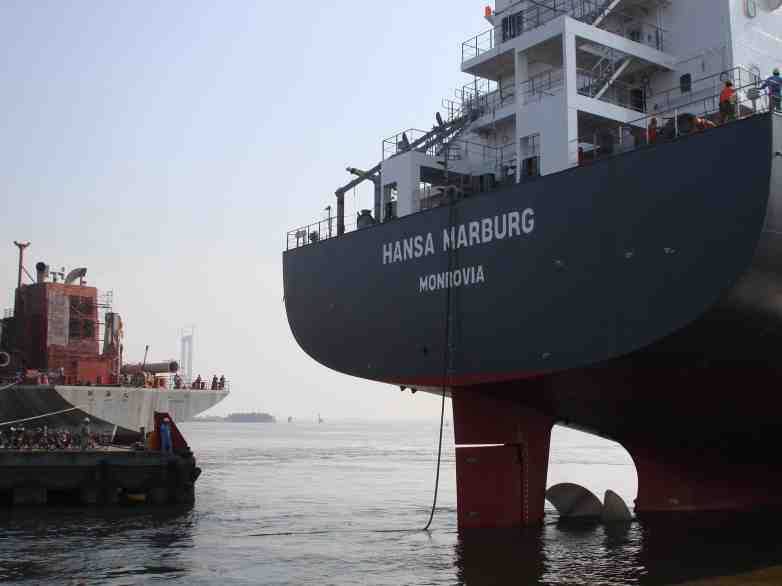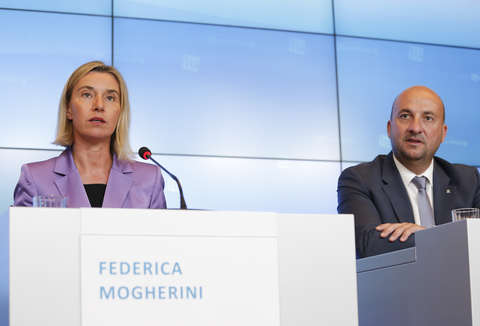The pirates go on the attack again in the Gulf of Aden. The captured Aris 13
(B2) The Somali pirates have been talked about again. They attacked and captured an Emirati tanker, flying the Comoros flag, theAris 13. The information was confirmed on Tuesday (March 14) by the headquarters of the European anti-piracy operation (EUNAVFOR Atalanta) in London. Boarded, the pirates diverted the ship to their lair, and the Aris 13 was " anchored off the northern coast of Puntland, near Alula ". According to our latest information, after the first sightings, the pirates would have moved the ship about twenty nautical miles further west. I'Aris 13 has eight crew members.
An Atalanta plane in flight
The information remained dotted for a few hours. The ship's captain had issued a distress alert (mayday) saying that two skiffs were heading towards his ship in the Gulf of Aden. Upon receiving the alert, an EU Naval Force (EUNAVFOR) P3 Orion (Maritime Patrol Aircraft) immediately took off from its base in Djibouti to locate the tanker and make radio contact with the ship's captain.
A situation that remained unclear... until the ransom demand
But, despite the visualization from the ship on several occasions, no contact could be established. The situation on board remained unclear until late afternoon when EU Naval Force Operational Headquarters in London was able to establish telephone contact with the ship's captain ». The captain then confirmed that armed men were on board his ship and that they demanded a ransom for the release of the ship ».
Active surveillance with the means at hand
« All available EU Naval Force assets continue to monitor the situation “, we specify at the HQ of Atalanta. That is to say, according to our information, essentially a maritime patrol aircraft which allows "to monitor the situation" (NB: the international forces are not intended to operate a resumption of force, especially so close to the coast) . The operation now only has one ship, the Spanish ship Galicia (L51) (read: The Indian Ocean route, Galicia knows it) and two P3 Orion maritime patrol aircraft (one Spanish and one German, based in Djibouti). But it can also count on the reinforcement of the various ships of the marines which cross in the region regularly (French, British, American...), in particular for the operations of the coalition in Iraq (1).
The return of active piracy
This is the first 'successful' attack since 2012, but not the first attack (contrary to what Reuters reports). There have already been several attempts (which never got very far). But the European military who closely monitor piracy were still worried.
Piracy is not over
Very recently (last week), I was discussing with a senior European official on the future of certain operations such as Atalanta and the need to reconfigure them, or even to close them at the end of the current mandate (until the end of 2018) . He had been very clear about the intentions: “On does not want to close Atalanta. Because she has not finished her mission. It must be remembered that piracy is made up of three elements: a question of opportunity, capabilities and the intention to act. We limited piracy because we cut them off from certain opportunities to act.»
...and will last until a solid state is established
« But if we remove this pillar, it starts again immediately [as in 2007-2008], because the intention to go on the attack remains”. The last attack amply proves it. “As for the capacities, they remain (or have been replenished). To remove them, it would be necessary to act on the coast. That is, to establish states. It must be remembered that piracy stopped in the Mediterranean when states were established along the coasts. »
In other words, until the Somali state has reestablished its authority on all coasts, piracy will remain, and there will be need for an international 'crutch' to prevent (or rather limit) any action by Somali pirates, in quest for prey and floating millions of dollars.
(Nicolas Gros-Verheyde)
(1) NATO's Anti-Piracy Operation'Ocean Shield' was arrested at the end of 2016 In fact, according to our information, it had been put on hold for several months, largely due to a lack of available maritime resources and the decrease in piracy.




